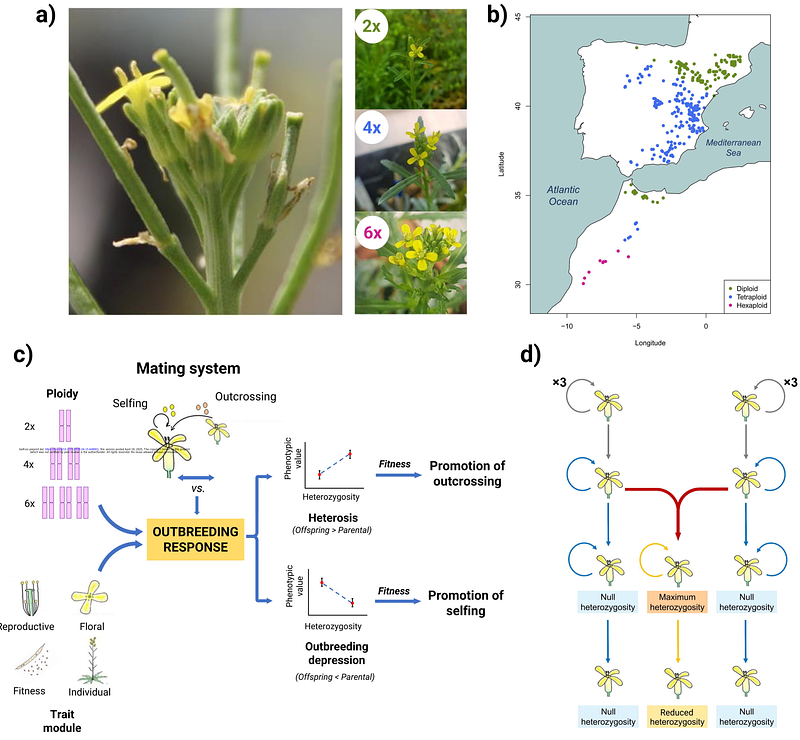Ploidy variation modulates outbreeding response and promotes mating system evolution in a selfing plant lineage.

Ploidy variation modulates outbreeding response and promotes mating system evolution in a selfing plant lineage.
Olmedo-Castellanos, C.; Garcia-Munoz, A.; Ferron, C.; Bakkali, M.; Munoz-Pajares, A. J.; Abdelaziz, M.
AbstractOutbreeding response, the phenotypic differences observed between selfed parental lines and their outcrossed offspring, can influence the evolution of selfing strategies. However, such effect remains poorly understood in non-crop species. We investigated the phenotypic outbreeding response variation across ploidy levels in Erysimum incanum, a predominantly selfing plant complex with diploid, tetraploid, and hexaploid populations distributed across the Iberian Peninsula and Morocco. We performed controlled within-population crosses to generate offspring with varying heterozygosity levels across ploidy types. We quantified individual, flower, and reproductive traits, and we estimated fitness components, and assessed trait modularity and phenotypic integration to see how heterozygosity affects trait coordination. Tetraploids showed the strongest and most consistently positive outbreeding responses, particularly in gamete production. Trait-specific outbreeding responses were positively associated with fitness across ploidy levels. Increasing heterozygosity was linked to a reduction in phenotypic integration, suggesting a loosening of trait correlations. Our results show that outbreeding response is ploidy-dependent and functionally connected to fitness. This suggests it may act as a selective force promoting outcrossing in highly inbred lineages. We suggest that outbreeding response is a dynamic and evolvable trait, with implications for mating system transitions and diversification in selfing plant populations.